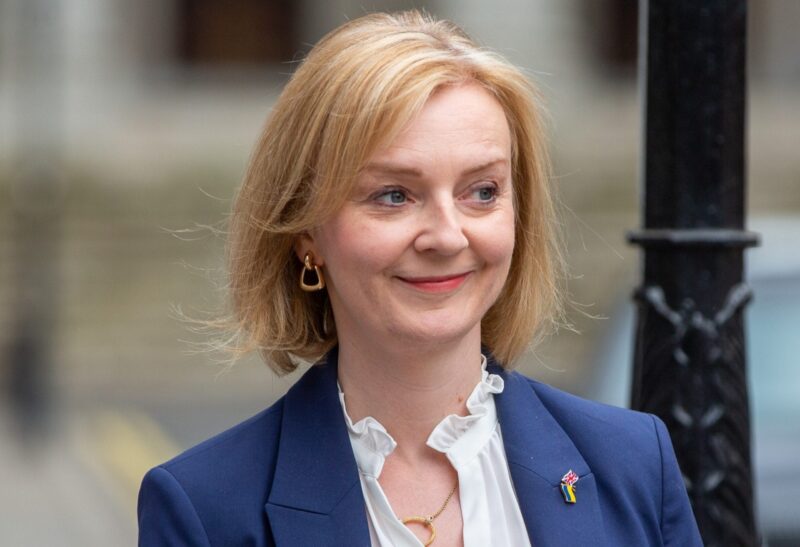What You Need to Know: New Prime Minister Liz Truss
What can landlords expect from prime minister Liz Truss?
It’s inevitable: A change in the country’s top job means a shuffling of the government’s priorities and policies – for better or worse.
With Liz Truss taking the reins as the new PM, the nation is keen to learn exactly what she plans to do, and how. And at such a tough time for the private rental sector, landlords are watching particularly closely. While we’ll all have to wait for the specifics and for ideologies to unfold into action, we can get a sense of her ideas from what she’s said and done in the past.
But before we get into what life under Liz may look like for landlords, let’s take a moment to recap her story so far.
Who is Liz Truss?
She held several jobs in private business and qualified as a management accountant, before embarking on her professional political career in 2010, when she became MP for South West Norfolk – a role she’d held ever since, while taking on an impressive string of roles in Westminster.
Says she has a “bold plan of action” for her time in power – but what could that look like? And will she fix the problems in the private rental sector?
What will Liz Truss do about rising rents?
Rents are climbing, and landlords and tenants are struggling to keep up. The increases are fuelled by rising property prices as well as interest rates pushing up mortgages. Meanwhile, demand for rented accommodation is outstripping supply, and tenants’ budgets are being squeezed by the cost-of-living and energy bill crises.
In 2022 the private rental sector faces a complicated tangle of issues, and there are elements of sector-specific problems, as well as those affecting everyone.
Within the sector, price hikes are partly due to scarcity, causing Truss’s predecessor Boris Johnson to set a goal of 300,000 new homes being built each year until the mid-2020s, as well as boosting the Right to Buy scheme in 2022.
Truss has indicated she intends to keep the goal of 300,000 new homes a year, while smoothing the way for developers by removing “Brussels red tape”. She also likes the idea of tenants being able to use records of rent payments to help them secure a mortgage and get on the property ladder, which will in turn ease demand on rental properties.
And more generally, the wider economic gloom is taking its toll on the private rental sector. Ms Truss takes to the helm amid urgent calls for government intervention to soften the blow of wage stagnation and double-digit inflation – but what does she plan to do about it?
Within the first 48 hours of her premiership she announced an energy bill freeze, keeping the average bill at £2,500 a year, for the next two years. After a summer of uncertainty and dread over the coming winter, this measure was welcomed.

Truss has made it clear that she favours tax cuts as a way to bolster economic growth ؘ– so much so that she has promised £30bn worth of tax cuts. While this came under intense criticism from many, Ms Truss believes this will restore people’s spending power while giving businesses the funds to grow.
There is no talk of restoring the landlord tax relief, which was cut in 2017, although many landlords will be hoping for such a step.
Will Liz Truss carry on with passing the Renter’s Reform Bill, and when will this happen? What could it mean for landlords?
The government and landlords definitely agree on one thing at least: There needs to be a good balance of tenant and landlord rights. However, there is less agreement on what that balance looks like.
Said by the previous government to be “the biggest shake-up of the private rented sector in 30 years”, the proposed Renter’s Reform Bill is part of the Levelling-Up agenda, which Ms Truss says she’s committed to progressing, although she’s not had much to say about this bill directly, yet.
The bill looks to abolish Section 21 (which allows ‘no-fault’ evictions) and tighten up the rules around grounds for evicting tenants. The bill would also bring in a digital ‘property portal’, introduce a Decent Homes Standard for all homes, and create a new private rentals ombudsman.
Boris Johnson’s government also proposed making all tenancies periodic, increasing the notice for rent reviews, and weakening landlords’ powers to exclude families with children, benefit claimants, and pets from their properties.
Some call the proposed changes “anti-landlord”, causing officers to defend the bill and arguing that it will “support good landlords to demonstrate regulatory compliance and to attract prospective tenants”.
Timings are uncertain. The bill was due to be in place by May 2023 – but factors such as the change in PM, the efforts demanded by the cost-of-living crisis, and the period of mourning and tribute to the late Queen, timescales are likely to stretch, perhaps significantly.
Not to mention the latest spanner in the works: Eddie Hughes, the MP behind the bill, resigned in September 2022. The government maintains it is “business as usual” within the department, but Hughes’ departure will at the very least impact the timeline, prolonging the period of uncertainty for landlords and tenants.
What will Liz Truss do to resolve the cladding crisis?
Since the tragic Grenfell Tower fire in 2017, there has been a strong message from many sections that hazardous cladding was an issue needing robust government input. The burden on individuals facing a literal risk to life is evidently proving far too heavy, but who exactly should pay has been debated at length.
The newest PM hasn’t publicly covered this issue in any depth – and, to be fair, it’s not been in any of her previous roles’ policy remit.
Liz’s love of ‘free and fair trade’ has led to some hope that her leadership may herald a more business-friendly age than in recent years. Some will recall the former housing secretary Michael Gove’s insistence that developers pay for safety improvements to address the cladding crisis.
But a statement from Truss back in 2019 alludes to a Conservative staple of personal responsibility. When asked a question about support for those affected by the cladding crisis she replied: “We fully expect building owners in the private sector to take action to ensure appropriate safety measures are in place. We have written to all owners to remind them of their responsibilities.” She also touched on local authorities’ powers to deal with dangerous materials and then bill private owners for their share of the cost.
Backtracking on post-Grenfell measures that bolster tenants’ rights would be guaranteed to make Truss extremely unpopular, but many will be hoping Ms Truss can come to appreciate the burden faced by smaller-scale landlords who have unknowingly invested in affected property.

How will Liz Truss support landlords in upgrading energy efficiency of properties to meet the incoming energy performance certificate (EPC) standards?
Landlords have been calling for a solid plan on achieving the necessary energy efficiency upgrades to meet the new EPC C minimum standard by 2025. The rising prices of materials, appliances and equipment have made this even harder.
Touching on energy efficiency, Truss said: “I support the net zero objective, but we need to reach net zero in a way that doesn’t harm businesses or consumers.” Her website refers to her plans to “install 600,000 heat pumps every year by 2028, £1 billion funding to make our … homes more energy efficient”.
Truss’s appointment of climate sceptic Jacob Rees-Mogg as the new energy minister has sparked bemusement in some quarters. Given his poor environmental record, there is concern over how much support will be given to energy efficiency improvements, but Truss will be aware that snoozing on something as time-critical as net zero will at the very least make her rather unpopular with millions of voters.
Will Liz Truss ease the burden of responsibility on landlords, such as the Right to Rent checks?
Since February 2016, landlords have borne the responsibility for checking any prospective tenant can legally rent a property. Right to Rent checks involve a face-to-face meeting with the tenant to view, copy and document proof of residential status, which is particularly demanding for smaller-scale landlords. This process was introduced to a landscape of tightening safety, quality and energy standards, and for some landlords it was the ‘last straw’, cited by those selling up as the reason for leaving the private rental market.
Ms Truss has said that she’s “concerned” about the levels of regulation faced by landlords, and the Right to Rent process is potentially some of the “red tape” that she purports to hate. She is also against rent controls, which she said would result in fewer properties being available to rent.
If Liz Truss is passionate about removing regulations and friction, and creating breathing space for business growth, this should benefit landlords, as long as Truss can grasp the complexities of the sector.
But … the lady IS for turning. Maybe.
Ms Truss isn’t averse to reconsidering her position. She was once a Remainer and is now a Brexiteer; she grew up left-wing but is now firmly on the right. Players in the sector need to speak up, competing with many other demands on her time, but she may listen and take note.
While flip-flopping from one view to another isn’t a great trait in a leader, there is much to be said for someone who listens to lived experience and then shapes policies accordingly.
Here’s hoping Ms Truss can become the PM that the sector urgently needs.